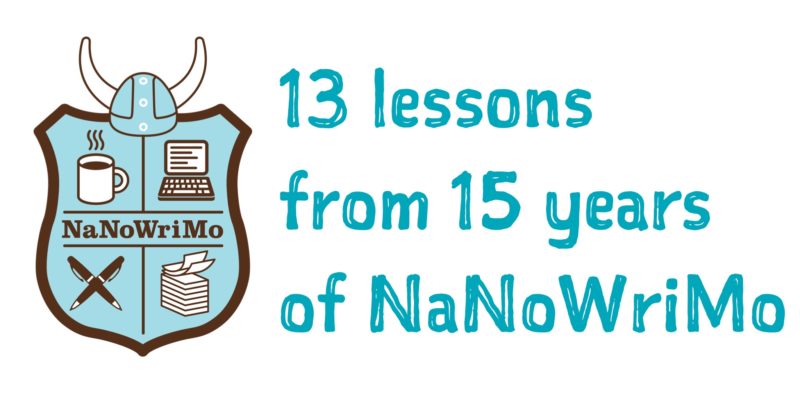2017 marks the 15th year (probably) that I attempted National November (or Novel) Writing Month.
Under the premise of “50’000 words in 30 days”, people write like mad within a month, spurring writing sessions in pubs, lively conversations online, and millions of lines written globally.
I’ve tried to do it at least a dozen times. I have “won” (made it to 50000) once, and made it a solid way through half a dozen times. And through those times, and in particular this last one, I realised I’d learned a few things.
This year was different for two reasons: I decided to write my novel on paper by hand and I took some time in October to think about characters, situations, worlds, and genres.
Here are 13 things I have learned.
- You can make up missing the daily quota for a day or three, but once you hit five you’re probably toast.
- So if you ever feel like you have a bit more left in you after you’ve hit your daily quota, keep going, and bank it for later.
- Writing by hand flows more easily, but has a lower words per minute count than typing. This makes it easier for “pantsters” and possibly frustrating for “plotters”.
- Don’t feel bad if you don’t “win” and make it to 50k. Even 20k is more than most people will ever write. As the poet says, “To have come this far is no small achievement: what you have done is a glorious thing.”
- Writing short essays, blog posts or articles is completely different from writing one very long story. Or it felt like that to me.
- What they say is true. The character writes the story themselves. To some extent. You still have to throw curve balls at them. I failed to find enough curve balls, and my story was…. boring. So I will collect curve balls to use next year.
- When and where you write are the most important elements for success. The earlier in the morning I started, the better I did and the more I wrote on that day.
- If you write by hand in a paper notebook that you’re always carrying with you, you can write anywhere, even on the tube. Even one-handed while you eat. And the battery will never run out.
- Carry a second pen. I mostly wrote with my fountain pen (an ultra-smooth medium-nibbed Carène by Waterman), and found that I had to refill daily. So I started carrying a backup pen, which saved the writing session many times!! It also was the one I used on the tube where a precious fountain pen could easily fall and break.
- Always knowing how much more you need to write before you reach your daily and overall goals feels good. And it’s easier to do when it’s a certain number of handwritten pages instead of a number on a settings window, because you can leave yourself a post-it as an end-of-race ribbon to break through!
- You will fall behind. Don’t give up. Don’t panic. Don’t stop. Even a smaller quantity on a day is useful, because it helps build a writing habit.
- What you write is unlikely to be usable. It’ll be a first draft at best. But you do discover your strengths and weaknesses, and what it takes to keep writing that sort of quantity.
- The hardest part is right after the middle. In part because my evenings got busy, and in part because there was still so much to write, after the middle, I flagged. And slowed down. And could not recuperate (see point 1). My final word count was 30548. The story was not finished.
But this is still a “win”.
December has me twitching to write, so I took my November “have paper anywhere” lesson and am carrying a thinner softcover notebook in which to begin and develop blog posts.
It is where this post started.
I have a feeling this is a habit that’ll stick and that there will be more frequent blog posts from now on!

